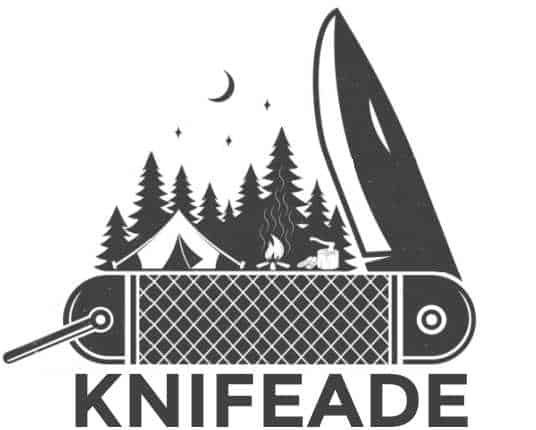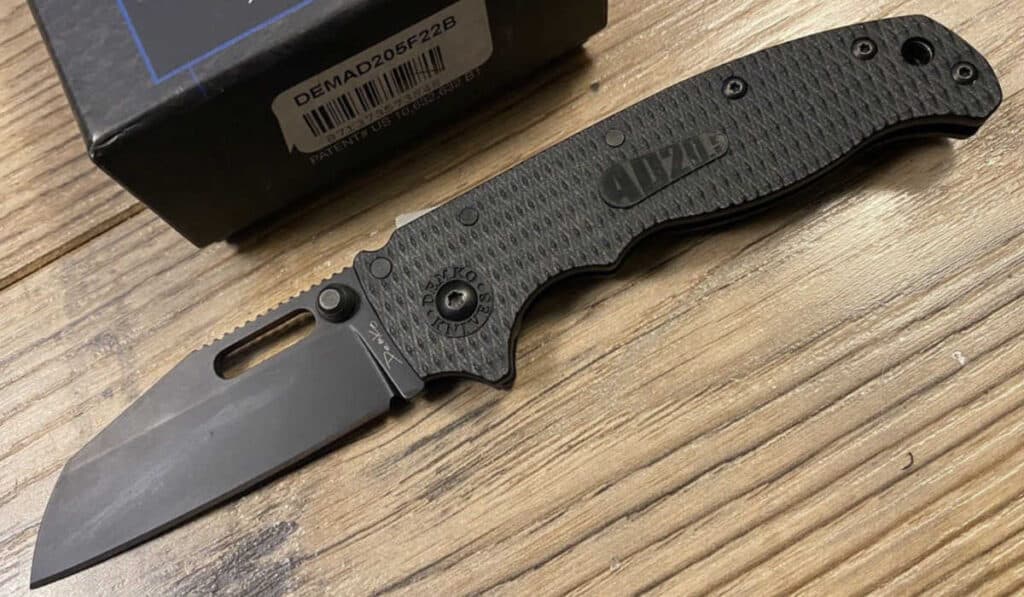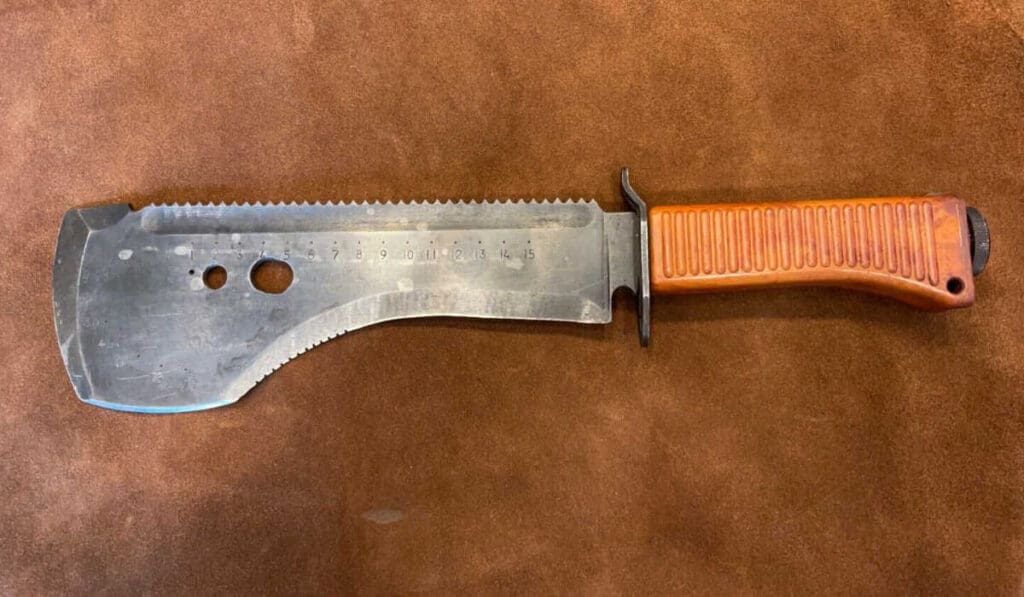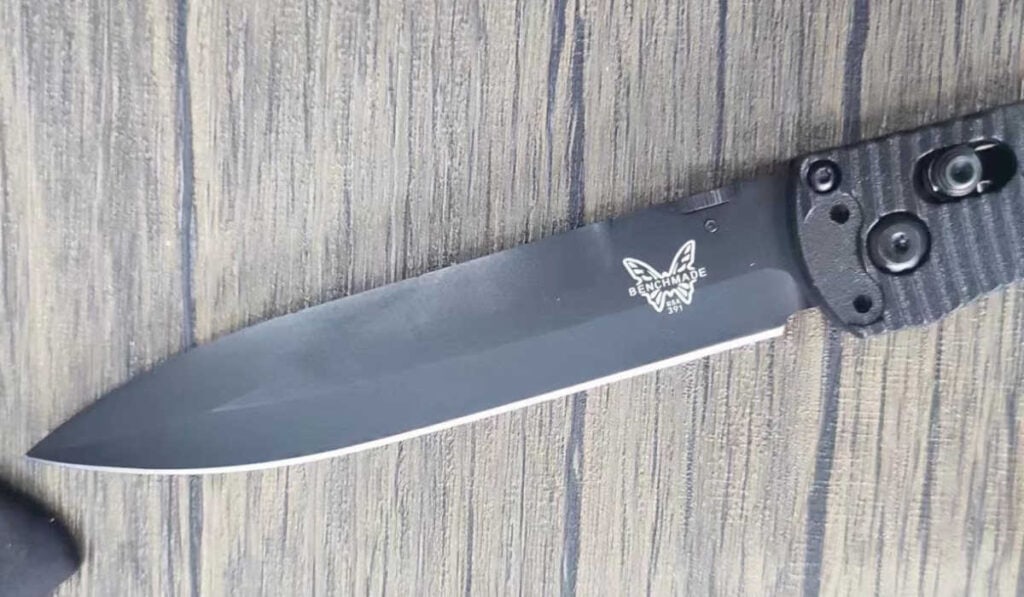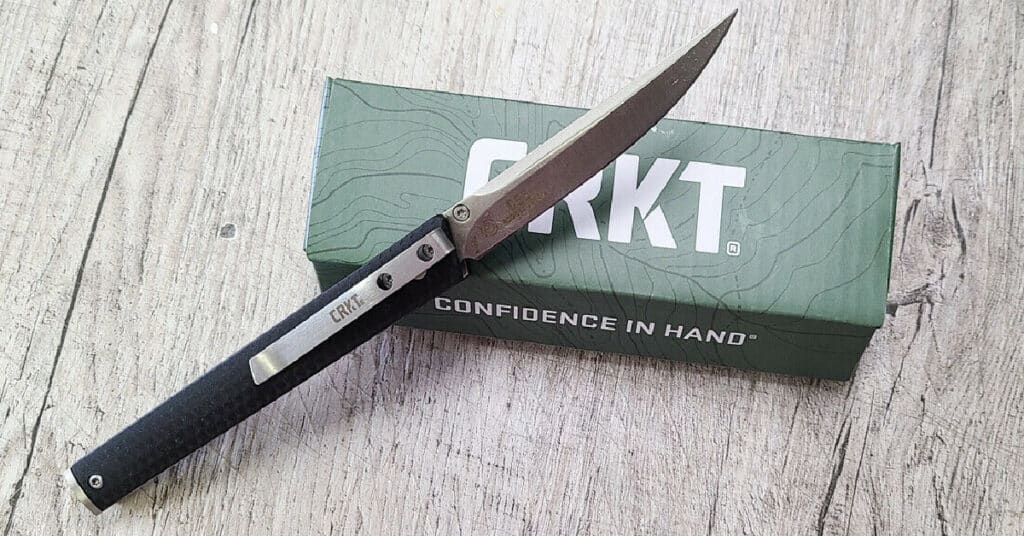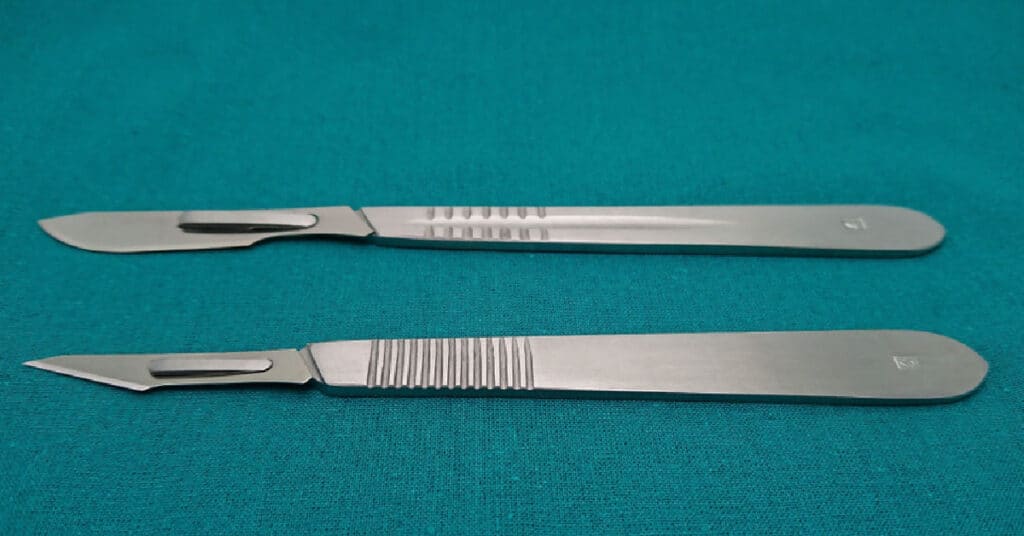Last updated on October 20th, 2023 at 07:10 pm
As an Amazon Associate I earn from qualifying purchases.
Are you a knife enthusiast living in Delaware? Well, you are in luck!
Knife laws can be a tad complex, often varying by state, making it crucial to comprehend the regulations surrounding knives before purchasing or carrying one. This holds especially true when crossing state lines.
To ensure your pocketknife collection aligns with Delaware knife law, here is a comprehensive guide covering the types of knives allowed, age restrictions, legal parameters for carrying them in public, and prohibited knives in Delaware.
Additionally, we provide resources regarding further regulation changes so you can stay up-to-date on all pertinent legislation related to Delaware knife law.
Our Top Rated “50-State-Legal” Knives
*These knives are listed based on their broad legality across states, but always consult your local laws before making a purchase.
Types of Knives Allowed in Delaware
Pocket Knives
Pocket knives, typically featuring a folding blade less than 3 inches long, are allowed to be owned and carried in Delaware. These knives are handy for everyday tasks like cutting rope or opening packages.
Switchblades
Switchblades, defined as knives with blades released by a spring mechanism or gravity, are prohibited in Delaware. Owning, selling, or carrying a switchblade is unlawful, and caution is suggested regarding knives with assisted opening mechanisms as their legal status may be ambiguous.
Prohibited Knives in Delaware
Knives are a popular tool and hobby for many people, but it is crucial to be aware of the laws regarding knife ownership in Delaware. In this article, we will discuss which types of knives are prohibited from being owned or carried within the state.
Gravity Knives and Butterfly Knives
Gravity knives are not allowed in Delaware as they fall under the category of knives with blades released by a spring mechanism or gravity. However, butterfly knives are legal to own in the state.
Automatic Knives and Stilettos
Automatic knives, also known as switchblades, are prohibited in Delaware due to their potential use as offensive weapons. Stilettos, on the other hand, are legal as long as they comply with the blade length restrictions of not exceeding 3 inches.
Knowing the laws surrounding prohibited knives in Delaware can prevent civil and criminal penalties. Now, let’s examine the potential consequences for violating knife laws in Delaware.
Age Restrictions for Knife Ownership in Delaware
There is no specified minimum age requirement for owning a pocket knife in Delaware, although federal law does restrict individuals convicted of felonies from possessing certain types of knives, including switchblades, even if they meet all other legal requirements set forth by state law.
Carrying Knives in Public Places in Delaware
When it comes to carrying knives in public places in Delaware, there are two different laws that apply. The first is the concealed carry law, and the second is the open carry law.
Concealed Carry Laws
In Delaware, it is illegal to conceal a knife with a blade longer than 3 inches on your person or within any vehicle you operate. This includes pocket knives and is irrespective of whether you have a valid permit for concealed carry; knives with blades over 3 inches must be visible at all times when carried in public.
Open Carry Laws
Open carry of any knife with a blade longer than 3 inches is legal in Delaware as long as it isn’t used to threaten, intimidate, or act recklessly. This holds true for knives carried solely for self-defense purposes6.
Bear in mind that while open carry laws permit certain knives, violating state regulations regarding their use can result in civil penalties and potentially criminal charges.
Penalties for Violating Knife Laws in Delaware
Civil Penalties
Violating knife laws in Delaware can result in civil penalties such as fines, court costs, and other violation-related fees. In some cases, these violations can also lead to criminal charges. For instance, possession of illegal switchblades can lead to imprisonment and/or a fine.
Preemption Law Regarding Knife Regulations in Delaware
Delaware does not have a preemption law regarding knife regulations. Local governments can pass laws restricting the possession, sale, transfer, ownership, manufacture, or carrying of knives, except prohibiting the possession of certain knives by minors under 18.
FAQs in Relation to Delaware Knife Law
Is Delaware an open carry state for knives?
Yes, Delaware is an open carry state for knives. You can carry any knife with a blade longer than 3 inches openly, provided it is not used to threaten, intimidate, or act recklessly. This also applies to knives carried solely for self-defense purposes. However, concealed carry of knives with a blade longer than 3 inches is prohibited.
Are butterfly knives illegal in Delaware?
No, butterfly knives are legal in Delaware.
Are switchblades illegal in Delaware?
Yes, switchblades are illegal in Delaware.
Are OTF knives legal in Delaware?
The legality of Out-the-Front (OTF) knives, which are a subtype of automatic knives, is ambiguous in Delaware. It’s advisable to exercise caution and perhaps seek legal advice if considering owning or carrying an OTF knife in the state.
Can a minor carry a knife in Delaware?
There is no specified minimum age for knife ownership in Delaware, but federal laws and local ordinances may apply, so it’s always a good idea to check local laws and regulations.
Delaware State Knife Law References
Delaware’s Knife Laws and Legal Codes:
- Definitions related to knives can be found in Title 11 Section 1457 of the Delaware State Code.
- Delaware Code Title 11, particularly under Chapter 5, houses several sections concerning the laws on different types of knives including switchblade knives and knuckles-combination knives.
Significant Court Cases:
| Case Name/Title | Summary |
|---|---|
| State v Harmon, 800 A.2d 1289 (2002) | The Delaware Supreme Court ruled that blade length includes the “un-sharpened” part. |
Conclusion
In conclusion, understanding the knife laws in Delaware before purchasing or carrying a pocket knife is crucial. Knife owners should be aware of what types of knives are allowed and prohibited, as well as any age restrictions for ownership and carrying them in public places.
Understanding the lack of a preemption law regarding knife regulations in Delaware can help ensure that you stay within the bounds of the law. If you have further questions about Delaware knife law, please consult your local government resources for more information.
Do Sheepsfoot Blades Have A Purpose? (Cuz They’re Ugly…)
Spetsnaz Machetes – Blades Of The Russian Special Forces
What Is The Actual Purpose Of A Spear Point Knife Blade?
CRKT CEO Review – Coolest, Most Worthless Knife Ever?
How Sharp Is A Scalpel? (Is It Sharper Than A Razor?)
Can You Shave With A Knife? (Yes, Here’s How)
As an Amazon Associate I earn from qualifying purchases.
